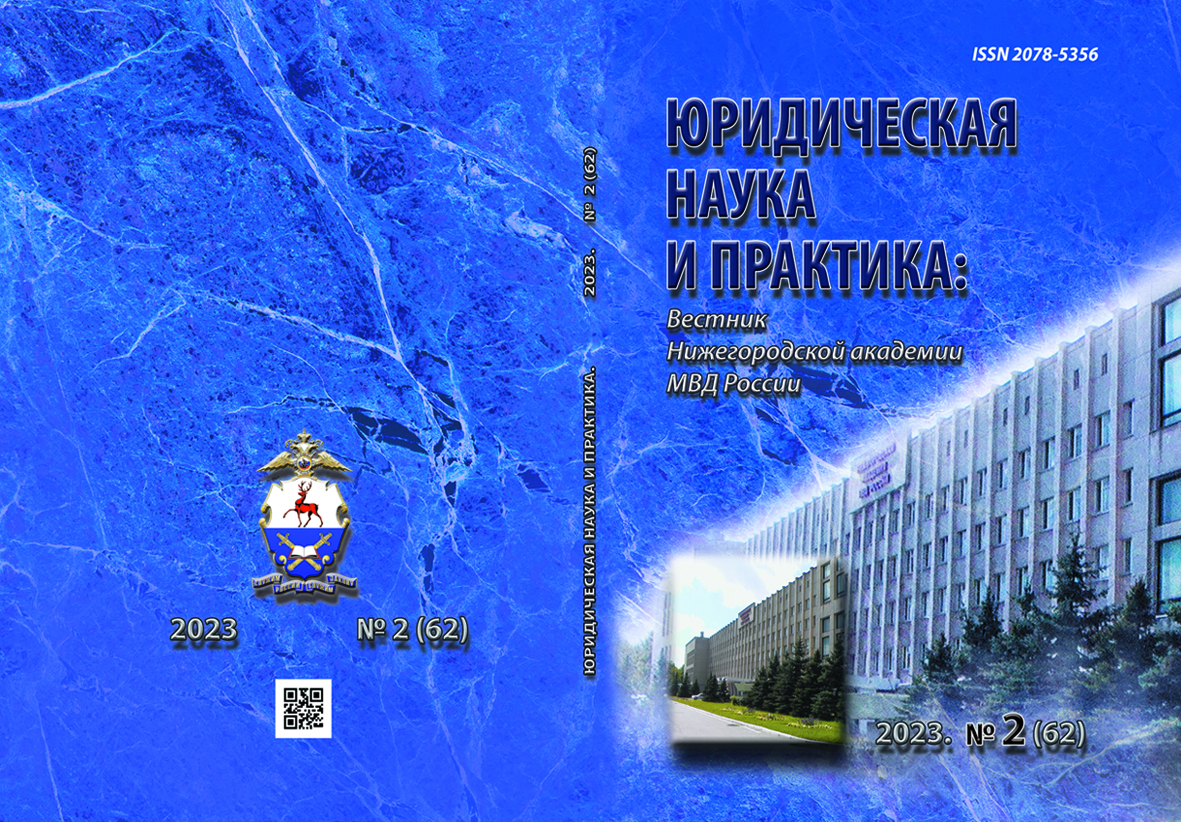Volga-Vyatsky branch of Moscow Technical University of Communications and Informatics
Russian Federation
The article reveals the features of the formation of the educational potential of volunteer activity at various stages of Russian statehood. An attempt has been made to analyze the participation of volunteer formations and volunteer movements in the organization of interaction with the police in ensuring public safety. he considered aspects of activity in the organization of interaction between police officers and volunteer movements contributed to increasing not only the effectiveness and improvement of crime prevention, the creation of safe living conditions for individuals and society, but also the formation of motivation among the population to improve the range of practical skills, value qualities. The nature, content of the organization of interaction and the results of the activities of members of public formations at various stages of the evolution of law enforcement agencies are analyzed. The practice confirming the social role of the volunteer movement is described. The constraining factors in the development of the volunteer movement are considered, the reasons and contradictions that take place in the organization of interaction between volunteers and the police in the search for missing persons, including minors, affecting the effectiveness of interaction between volunteers and the police are revealed. The reasons for the decrease in the volunteer potential of various social groups are outlined. A variant of using technologies and a list of events organized on the initiative of police officers in order to strengthen cooperation between the police and representatives of volunteer movements in solving the problem of ensuring public safety are proposed.
volunteering, young people, values, public safety, volunteers civil position
1. Ministry of Internal Affairs of Russia 1802-2002. Historical essay in 2 volumes. Vol. II. Saint Petersburg: St. Petersburg University of the Ministry of Internal Affairs of Russia Publ., 2002. 528 p. (In Russ.)
2. Gulina V. V. Functions of local self-government: institutional and legal research: monograph. Moscow: Rusains Publ., 2015. 176 p. (In Russ.)
3. Kiseleva N. A. Laws of the subjects of the Russian Federation on youth and youth policy. Bulletin of CHITSU, 2011, no. 7, pp. 41-46. (In Russ.)
4. Shevchenko P. V. The social role of Moscow volunteering. Sociological research, 2013, no. 8, pp. 60-71. (In Russ.)
5. Kirdina S. G. Civil society: departure from the ideologeme. Sociological research, 2012, no. 2, pp. 63-74. (In Russ.)
6. Pevnaya M. V. Management of Russian volunteering: the essence and contradictions. Sociological research, 2016, no.12, pp. 69-77. (In Russ.)
7. On the Police: federal law no. 3-FZ of February 7, 2011. Collection of legislative acts of the RF, 2011, no. 7, art. 900. (In Russ.)
8. Korolkova O. A. Organizational bases of interaction of territorial bodies of the Ministry of Internal Affairs of Russia with voluntary organizations in the search for missing persons. Scientific portal of the Ministry of Internal Affairs of Russia, 2013, no. 3 (23), pp. 60-65. (In Russ.)
9. On the participation of citizens in the protection of public order: federal law no. 44-FZ of April 2, 2014. Rossiyskaya Gazeta, 2014, no. 77. (In Russ.)
10. Bezrukov A. V., Puntus S. A. Formation of an optimal model of cooperation of public formations with the police in the field of ensuring constitutional law and order in Russia. Proceedings of the Academy of Management of the Ministry of Internal Affairs of Russia, 2021, no. 4 (60), pp. 51-59. (In Russ.)
11. Boshamdjieva N. A., Kashkina E. V. Administrative and legal regulation of interaction of internal affairs bodies with civil society institutions in the field of crime prevention. Administrative and municipal law, 2010, no. 9, pp. 14-19. (In Russ.)












